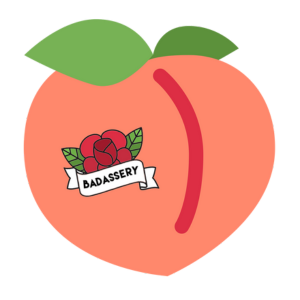My Self-Care Legacy as a Black Woman
By Badassery member Martha Tesema, Content Strategist at Shine, obsesser of diversity and inclusion, craver of media and culture, photographer and finstagrammer. In honor of Black History Month.
I used to hate Wash Day.
Maybe it was because of my young, tender head—or maybe it was because I would rather have been skimming my knees on the boulders in the empty lot down the street with my brother.
Anything sounded better than being locked up in the house, with my mother and aunts hovering and detangling and twisting and braiding the massive amount of hair on my head. Ask any kid to sit for that long and they would hate it, too.
Like many, “self-care” wasn’t a word in the zeitgeist when I was growing up. I didn’t understand what it meant until I had moved far away from that house and began to instill the same routines—like Wash Day—my mother and my aunts used to force me to endure. The work I do now helps people prioritize similar routines that help them check-in with their mental and emotional health. But in my day-to-day reflection of how to help people best do that, I noticed that I rarely stopped to consider how self-care was modeled for me in the past—and more importantly, what it means to me today as a black woman.
The formidable matriarchs of my family carried the weight of the world with such grace and compassion, and during my formative years I saw them steal moments of self-care when they could. It was never a high priority—too many things got in the way making it such—but it was noticeable enough to make an impact on me. To them, self-care didn’t look like face masks or bubble baths. Instead, it was a practice that showed up in moments like Wash Day, long conversations with loved ones back in Ethiopia, cooking extravagant meals for each other, and walks (my entire family lives for a hike or a quick nature walk).
Years after I bore witness to the small moments of care they extended towards themselves—and each other—I came across the celebrated Audre Lorde quote. I’m not sure where I was when I first read it, perhaps at the library on my college campus, but it still sends chills down my spine:
“Caring for myself is not self-indulgence, it is self-preservation, and that is an act of political warfare.”
I’ve heard it uttered in so many contexts, but none ring as true to me as that quote placed in the context of the black women in my life and their pursuit of wellness and self-care.
They are, after all, survivors of war, and creators of new lives in new worlds. They are women who built everything from scratch, women who taught themselves new languages and new ways of being. They became medical professionals, lawyers, and business owners—and yet they still carry buried trauma of their many lives lived. Their moments of care—care for me, care for themselves—was an extension of that same self-preservation Lorde spoke of. It was a key act of resistance in response to the trauma that informed so much of their lives. But upon reflecting, I realized it was also a key foundational piece of their legacy.
The ways in which they’ve practiced self-care have been passed down to me in routines I didn’t realize was connected directly to them. For me, it shows up in long conversations with them on the phone, occasional walks around the city during my lunch breaks, cooking with people I love. It also shows up in how I care for myself—particularly my hair—and how that journey has evolved into a routine that gives me cherished moments of mindfulness and gratitude.
My self-care journey is still under construction, continually changing based on my current needs—but that freedom to shift and change how I prioritize my mental and emotional health isn’t lost on me. It’s one of the many freedoms that I carry from my mother and her sisters, and it’s one that I actively try to build into the abundant legacy left to all the young black women in my family.
A few weeks ago, I FaceTimed up my youngest cousin (stateside) to wish her a happy 13th birthday. She responded bubbling with excitement about the day ahead. “But first, I have to wash my hair,” she said, begrudgingly. She panned the camera up, towards her head to show me the progress she had made in detangling. I smiled, thinking about how her mother and mine had once bent over my head doing the same smoothing/stretching/shaping years ago—and how the act of self-preservation and political warfare will continue to thrive in future generations, long after me.
Check out more about Martha on her Badassery page + Twitter, and join us for our live storytelling event in NYC on 2/20. RSVP here.


